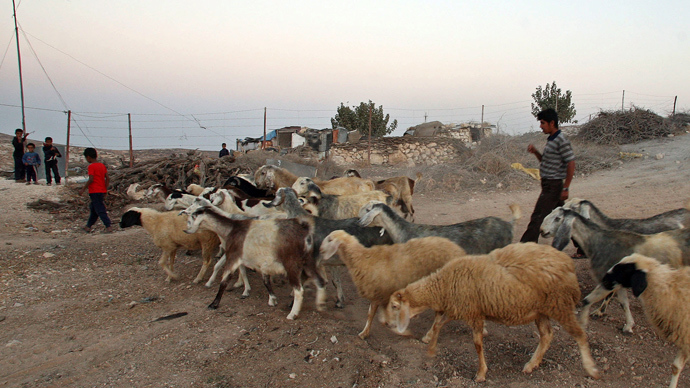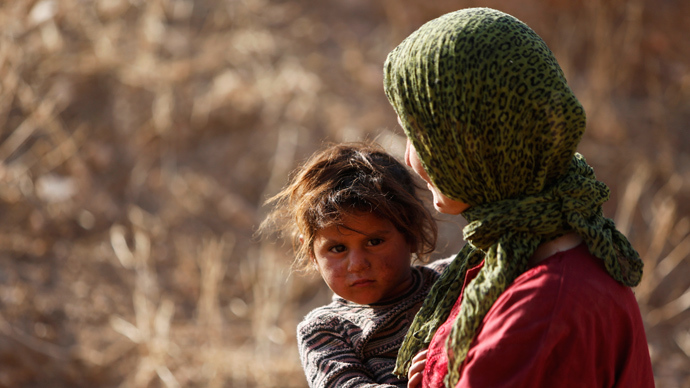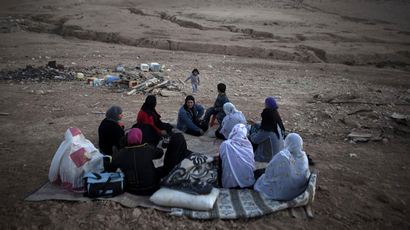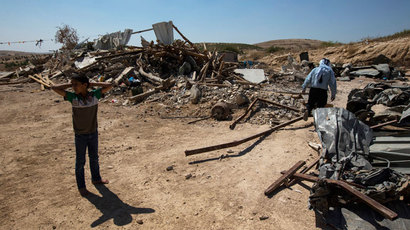Israel defers controversial Bedouin relocation plan

Israel is halting a controversial law to relocate 40,000 of Bedouin residents from the Negev Desert in the country’s south. The proposal of the bill sparked accusations of ‘discrimination’ and ‘ethnic cleansing’ from activist groups.
The decision to shelve a controversial Prawer Plan was announce by former cabinet minister Benny Begin, who initially was an author of the plan. Begin revealed at a press conference that he had not approached the Bedouin with the plan and did not receive their [the Bedouin] approval.
“We agreed to promote the bill only because Benny Begin said that he discussed the plan with Bedouin representatives and that it was the only outline they would agree to,” coalition chairman MK Yariv Levin said, but “it was revealed that he [Benny Begin] did not discuss the matter with them [the Bedouins], and did not receive their support.”
“There is no longer a coalition majority supporting the Prawer bill … in its present form, because there is no justification to do so," he added.
According to Levin the current plan should “undergo vast changes” and “not be presented to the Knesset plenum for the second and third reading in the next few months.”
Begin said he will continue the efforts to improve the Bedouin communities in the Negev. According to him Israeli PM Benjamin Netanyahu accepted his “recommendation to shelve the plan.”
The groups of Bedouin Arabs were pleased with the announcement. Thabet Abu Rass, the Negev director of Adalah, a group that presses for Arab rights in Israel, hopes “a new plan will be introduced very soon.”
“It’s time for the government to engage in a meaningful dialogue with the Bedouin,” says Abu Rass, “The Bedouins will cooperate; they want to cooperate. The best thing is to work together.”
According to the controversial Prawer Plan, nearly adopted by the Israeli government in November, up to 40,000 Bedouin Arabs were to be removed from their homes in Negev to government-approved towns. The plan also saw the demolition of over 40 villages and confiscation of 70,000 hectares of land.
The plan was based on an effort to “better integrate Israel's Bedouin population into Israeli society,” says the Israeli government. Though the Israeli authorities said the Bedouins would be granted compensation, the plan signaled “systematic discrimination and separation” of Bedouins, according UK-based charity, the Palestine Solidarity Campaign.

The government has already destroyed the Bedouin village of Araqib in accordance with the plan in August. The Bedouins were offered alternative sites to which to relocate, but they held protests against the state policy.
Still, Israel insisted the plan was aimed to provide basic services that many Bedouins lack as the government has already invested hundreds of millions of dollars in housing, health, public services and education for the Bedouin.
Many of those who opposed the plan offered an alternative to legalize these 35 villages, but government officials said it was impossible because of the villages’ illegal infrastructures.
The Prawer Plan was widely criticized all over the world causing various protests and accusations of ethnic cleansing from many activist groups.
In November, on the international Day of Rage, thousands of people across Israel flooded the streets in protests in both Gaza City and in East Jerusalem. Over 1,200 Bedouin demonstrators came out of the streets in the Negev village of Houra. The same day saw the protests in the UK as people in London, Brighton, Bristol and Cardiff took to the streets to voice against Israeli plans.
The UN Secretary Ban Ki-moon on the International Day of Solidarity with the Palestinian People called upon Israeli authorities to abandon the plans to resettle tens of thousands of Bedouin Arabs.
The Palestinians have also condemned Israel’s plans, holding mass demonstrations against the Prawer Plan.
The plan was even criticized by some Israeli media which said the Bedouins were “Israel citizens who were granted citizenship in the 1950s.”
The Negev Bedouins are small nomadic Arab tribes in the Negev region of Israel that are traditionally more identified with Israel than their Arab origin. The Bedouin population in the Negev totals over 200,000.
Nearly 90,000 live in 46 villages, 35 of which are still unrecognized by the Israeli government as they were built without basic services such as electricity and running water. The Israeli authorities have gradually taken measures to improve the villages’ infrastructure.














